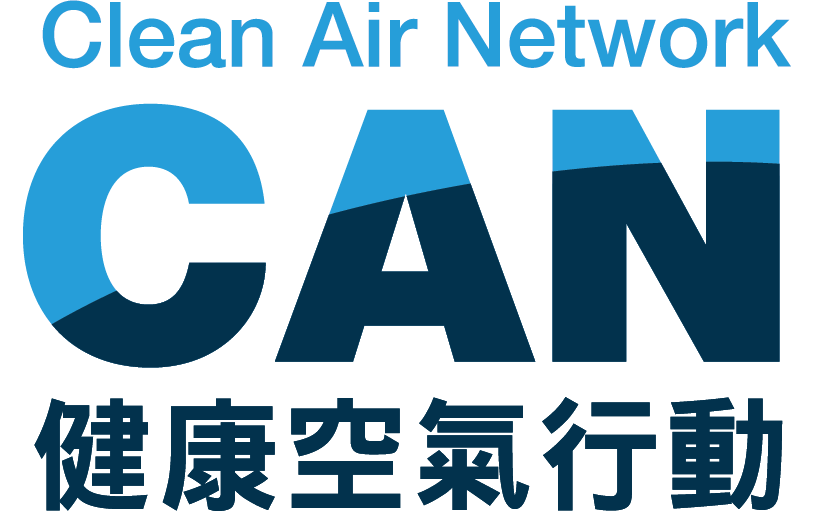
Air quality is a systemic issue caused by multiple factors: emissions from transportation, ship vessels, power generation, and regional emissions. Hong Kong has the world’s highest urban population density, surrounded by busy global shipping routes and high-volume regional industrial activities.
The COVID-19 pandemic escalated widespread concerns on indoor air quality problems, which are caused by various pollution sources, and can be worsened by other factors such as human behaviour and building designs. High-rises built close together within small spaces trap polluted air by preventing ventilation. Traffic congestion also aggravates pollution in these streets where emissions cannot be dispersed.
To achieve sustainable clean air, Hong Kong needs an aligned strategy for transport and urban planning.
CAN believes the improvement of Hong Kong’s air demands a dynamic strategy that generates support from the public, corporates and policymakers; reduces sources of pollution; and inspires urban planning and building guidelines that can directly address air quality needs.
All of these goals are interrelated. Our approach thus targets and scales up each of them in successive phases .
Our advocacy has always been centred upon our belief in the power of public dialogue and civic exchange. CAN remains constantly engaged within a continuously changing civic and political environment. Our strength is our capacity to bring together different communities across Hong Kong and, as a unified network, amplify all of our voices.
Foster an informed and mobilized citizenry to effect changes
Our first priority is driving public awareness and earning support.
Through public health campaigns, we educate the serious effects of air pollution on personal health. In recent years, we launched two forward-thinking environmental educational programmes, “Clean Air Neighborhood” and “Clean Air Schools for Hong Kong“, to deepen our engagement with schools, families and communities. By enhancing knowledge and building network among students, teaching staff, parents and the wider community, CAN helps to strengthen the districts’ overall capacity to address environmental health risks.
In November 2022, CAN launched a public project “ON AIR” to re-orient public consciousness to the air we breathe, which is a new initiative to explore how creativity and collaboration can bring new perspectives to environmental, urban and well-being issues.
Facilitate collaboration to identify solutions
With a base of public support established, CAN started advocating for a series of policy improvements to lower emissions and a tightened legal framework. Among these, driving the shift to a zero-emission road vehicular fleet remains the most impactful approach to reduce roadside air pollution.
In recent years, we have aroused significant attention among the public on the transitioning of the franchised bus fleet in Hong Kong through our “Getting Ahead” campaign. While the bus operators and power companies have responded positively to support a viable transition, CAN continues to work with other public transport and commercial vehicle sectors as opportunities arise.
Policy innovation is the key to tackle more complex issues including transport management and street design. CAN continues to work with different collaborators to initiate policy entrepreneurship that emphasises on a tri-sectoral (community, NGOs, policymakers) participatory process, policy benchmarking and prototyping.
The Des Voeux Road Central pedestrianisation project, which is aimed at igniting the re-imagination of transport planning and street design in CBDs, is now steered by a new NGO that CAN supported to establish.
Build and share knowledge to initiate new conversations
It is also important for us not to lose sight of any new emerging risks.
With the support of academics and professionals, CAN builds and shares knowledge through conducting studies and analyses that point to gaps and trends that worth paying attention to. We set up the “Pre-School Wheeze Hong Kong” website in June 2022 as an educational platform to facilitates parents to understand the relationship of Pre-School Wheeze and air pollution, and to equip them with knowledge on managing the syndromes as well as preventive measures. Over the past years, we instituted annual air quality reviews, which aroused discussion on policy gaps and drove the government to focus on tackling roadside nitrogen dioxide emissions and ambient ozone from the region.
CAN also collaborated with legal firms to compile comparative studies on air pollution control regulations across multiple jurisdictions to inform policymakers who are responsible for reviewing the Air Quality Objectives (AQOs) once every five years.
CAN continues to work with schools and corporates to study the severity of indoor air pollution and its impact on physical and mental health, cognitive (learning and working) performance, and the wellbeing of school and working communities, and to identify possible solutions.
Visit CAN’s Knowledge Hub to gain insights on Air Pollution in Hong Kong and Indoor Air Quality, understand the Citizen Clean Air Plan, and get to know the various Local Studies conducted by CAN.